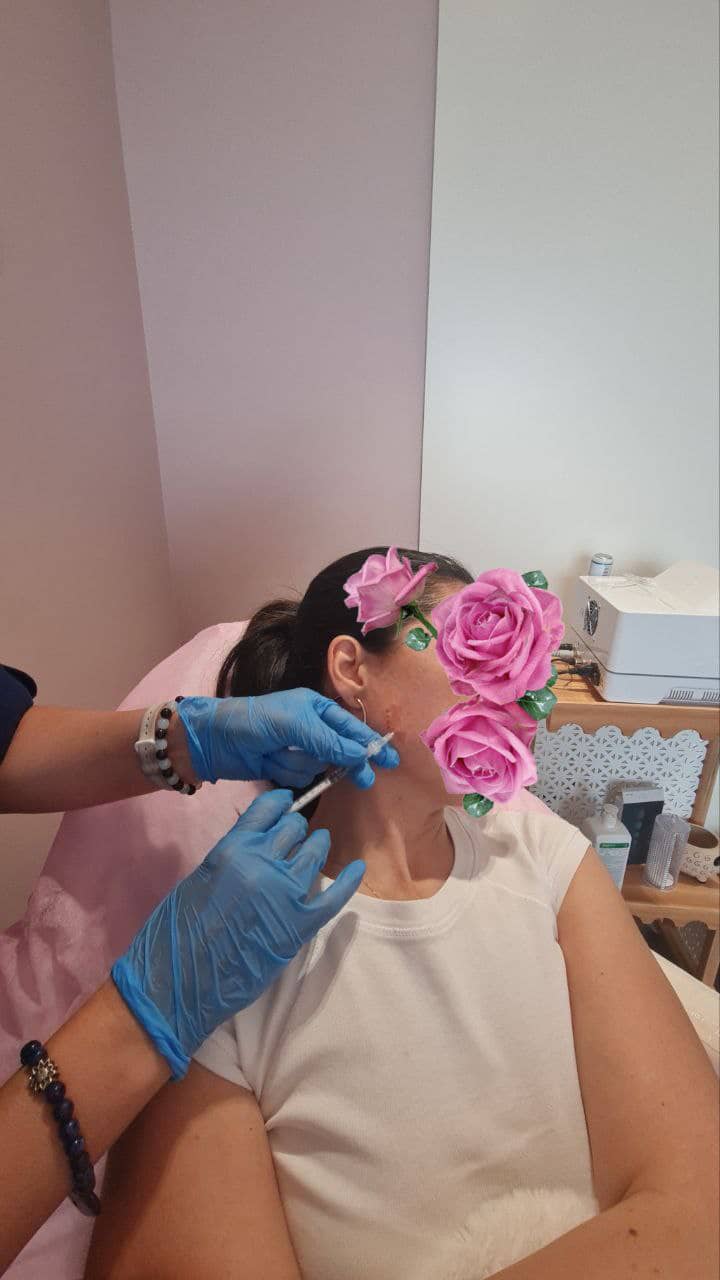Mesotherapy



Mesotherapy is a treatment method that can be used for various medical and aesthetic purposes such as skin rejuvenation, hair loss treatment, acne scars, cellulite treatment and skin tightening. It is a procedure that involves injecting small doses of active ingredients with fine needles just under the skin, at a depth close to the skin surface, so it is actually the general name of a method of administration.
The active ingredients used in mesotherapy usually include vitamins, minerals, amino acids, hyaluronic acid, natural plant extracts and other nutrients. Different components will be selected according to the area to be treated and the purpose of the application. Mesotherapy can be used both in medical aesthetic applications and in pain treatment.
Mesotherapy is a type of injection therapy on the skin. This treatment method is used to treat skin problems or to restore youth and vitality to the skin. Mesotherapy involves injecting small amounts of medicines, vitamins, minerals or other nutrients under the skin.
Mesotherapy is usually applied to areas such as the face, neck, décolleté or scalp. The content of the injected substances may vary depending on the skin problem to be treated and the treatment goals. It can be used for a variety of purposes, for example, wrinkle reduction, skin tightening, spot reduction, acne treatment, preventing hair loss or promoting hair regrowth.
The mesotherapy procedure usually involves the following steps:
- Patient Assessment: First, a dermatologist or aesthetician evaluates the patient’s skin condition and treatment goals.
- Preparation of the Treatment Area: The area to be treated is cleaned and sterilized.
- Injections: Using a small needle or syringe, nutrients are injected under the skin at regular intervals. The injected substances reach the dermal layer under the skin and target skin problems.
- Aftercare: The procedure is usually quick and most patients can return to their daily activities immediately. However, any aftercare may be required in line with the doctor’s recommendations.
Mesotherapy can often cause side effects such as mild discomfort or swelling, but they are usually temporary. The effectiveness and results of treatment may vary from person to person. It is also important to consult a healthcare professional to determine if mesotherapy has any side effects or complications.

How is Mesotherapy Performed?
The mesotherapy procedure is usually performed using local anesthesia, so there is minimal discomfort. First, local anesthetic cream is applied and waited for 15-20 minutes, then the skin is cleaned and the mesotherapy process is started. With very fine-tipped needles, very small amounts of active ingredients are injected into specific areas of the skin, so-called microinjections. The application time may take 10-30 minutes depending on the location and the procedure performed. These injections stimulate skin regeneration, repair and healing by targeting problem areas under the skin.
Which Areas Can Mesotherapy Be Applied?
The application sites vary depending on the purpose of treatment. It can be used on the face for skin rejuvenation, wrinkle reduction, skin tone balancing and skin elasticity enhancement. It can also be applied in the neck and décolleté area for skin rejuvenation and skin tone balancing. Under-eye mesotherapy can be applied to reduce wrinkles around the eyes and to lighten under-eye bags and bruises.
Mesotherapy can be applied to the scalp to prevent hair loss or stimulate hair growth. Mesotherapy can be used for body aesthetics such as cellulite treatment, skin tightening and skin tone correction in different parts of the body (such as hips, legs, abdomen and arms).
Mesotherapy can be used to reduce the signs of aging on the skin of the hands and feet, balance skin tone and treat dark spots on the back of the hands or feet.
Mesotherapy application areas will vary depending on the purpose of treatment and the needs of the person.
What are the Side Effects of Mesotherapy?
As with any medical procedure, mesotherapy can have some side effects. These side effects:
There may be mild pain or tenderness, redness or swelling at the injection sites. These usually disappear within a few days after the procedure. Bruising may also occur at the injection sites. This usually subsides within a few days. In rare cases, infection may develop at the injection site. Symptoms may include redness, pain, swelling and fever. In such a case, it is important to inform your doctor immediately so that he or she can plan your treatment.
Allergic reactions may also occur due to the substances contained in the products used for mesotherapy. In this case, symptoms such as itching, redness and rash may occur on the skin. In such cases, it is important to consult your doctor.
